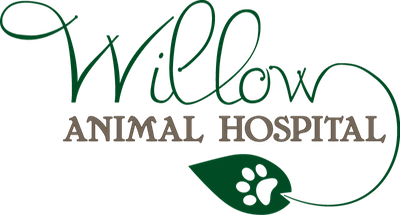Tag Archives: pets
May Your Days Be Merry & Bright...
As we move into the Christmas season, we are again reminded of God’s great gift of salvation. It is our sincere hope that as you celebrate the holidays with your family, friends & pets, you may know & understand how very much you are loved, & may experience God’s peace & rich blessings. Have a bright, merry & meaningful Christmas!!
(photo courtesy of: http://wallpapersafari.com/christmas-pets-wallpaper/)
Rabies is Incurable?!?
Rabies is a zoonotic disease, meaning it can be transmitted between people and animals. Wildlife like bats, skunks, and raccoons are some of the most common carriers of the disease. Infection occurs when saliva of the infected animal enters the bloodstream of another mammal (this is often from a bite). The disease can take weeks to months to develop symptoms, but once they develop the disease is fatal. Recent confirmed cases of rabies in bats in Ashland and Bayfield Counties have been documented. Please consider the following steps to protect yourself from this deadly disease:
•Keep your pets current on their rabies vaccination. It is only legally required in dogs, but highly recommend in other species (cats, horses, etc.). Not only will this protect your pet from rabies, but in turn it protects you from being exposed to rabies from your own pet.
•Keep your distance from mammalian wildlife, especially any exhibiting abnormal or sickly behavior (ex. a skunk roaming during daylight, a bat acting weak and sick)
•If you are bit by mammalian wildlife contact your local health department. They will direct you on how to submit the animal for rabies testing, if necessary. Only collect the animal if it can be done safely, and try to avoid damaging the head. If you cannot collect the animal, you should still contact your local health department for further instructions.
•If you find a bat in your house contact your local health department. Bat bites can often go unnoticed while you are sleeping. The health department will direct you on how to submit the animal for rabies testing, if necessary. Dr. Sarah Myers, Willow Animal Hospital
(photo courtesy of: www.delavanlakesvet.com)
TICKS: Beyond Lyme Disease & "Ewww!"
If you have lived in northern Wisconsin long enough you probably have run into a tick or two, or hundreds. You may be familiar with the most common risk with ticks as carriers of Lyme disease. Here are some things you may not know about tick diseases:
•The ticks in our area can carry many diseases that can effect both people and pets (Lyme, Anaplasmosis, Ehrlichiosis, and Rocky Mountain Spotted Fever are some of the most common)
•Of the many tick diseases, only Lyme disease has an available vaccine for dogs
•No vaccine (including the Lyme vaccine) is 100% effective at preventing diseases
•A multimodal approach to tick disease prevention is considered the most effective at keeping your pets safe (Lyme vaccine, topical or oral tick prevention products, daily tick checking, avoiding wooded or long grass areas during peak tick season)
•It can sometimes take several months after a tick bite for disease symptoms to develop
•Symptoms of tick diseases can include lethargy, anorexia, lameness, swollen painful joints, high fever
•The classic “bullseye” appearance of a tick bite that is described in people with Lyme disease is not typically seen in dogs
•Many tick disease infections carry a good prognosis if treated promptly and with the entire course of prescribed antibiotics
•Some tick disease infections can cause very serious side effects that may be fatal (ex. Lyme disease in some dogs can lead to a potentially fatal kidney failure)
Call us if you have other questions about tick diseases! Dr. Sarah Myers, Willow Animal Hospital
(photo courtesy of: www.pvguide.org)
Click HERE for 5 ways to protect your pet from Lyme disease.
Click HERE to learn more about protecting yourself & your family from Lyme disease.
Heartworm Disease is SERIOUS
Heartworm disease is a condition where parasitic worms take residence in the heart. That can result in congestive heart failure and death. It is most likely to affect dogs, but very rarely cats can be infected too. The microfilaria stage of the disease is transmitted by mosquitoes. Once inside their host, the microfilaria develop into adult worms that inhabit the heart. The disease is less common in our area (northern Wisconsin) but we still see cases. Dogs that travel to southern Wisconsin or other warmer states are at a much higher risk. The disease is preventable with a relatively inexpensive and safe monthly heartworm prevention pill. If your dog does contract heartworm disease, early detection can allow for treatment, but at considerable expense and with some risks of serious side effects from the treatment. Advanced stages of heartworm disease are often fatal despite any attempts at treatment. Please schedule an appointment if you would like to learn more about testing or prevention for heartworm disease. Dr. Sarah Myers, Willow Animal Hospital
(photo courtesy of: www.whitecloudvet.com)
Baby, It's Cold Outside!
Its cold weather season! For outdoor pets, adopt the following rules to keep them safe during subzero temperatures:
•Provide a shelter to escape the cold that is clean, dry and insulated (garage, shed, kennel)
•Avoid abrupt temperature changes like bringing pets into a heated facility and then back out into the extreme cold as this can put them more at risk for certain infectious diseases
•Keep your pets dry with regular bedding changes, removing wet blankets or covers, and providing a shelter to avoid getting wet in the first place
•Use a heated water container and check it regularly to ensure there is plenty of liquid water available
•Increase feed by about 10-15% in order to help pets tolerate the cold stress
•Take caution with the products you use to help melt ice and snow as they can be irritating to pets’ feet or GI tract when ingested. Look for pet safe salts or avoid use when possible.
•With outdoor cats and wildlife in the area, make sure to tap on your hood before starting the car to make sure they are not cuddling up next to the heat of the engine
•Keep your pet away from lakes and ponds in the area that could have thin ice
Dr. Sarah Myers, Willow Animal Hospital
(photo courtesy of: theforumnewsgroup.com)
Merry Christmas!!!
Merry Christmas, from the doctors and staff at Willow Animal Hospital
Thank you for your business and friendship! May you feel God’s blessing during this holiday season, and have a new year that is full of hope and joy. (photo courtesy of: www.pinterest.com)
Independence Day Tips
Happy 4th of July! As you enjoy the festivities remember to keep your pets’ safety in mind. The stressful noises of parades and fireworks can be a major source of stress for your pets. Make sure they are secured in a safe place or on a secure leash during parades and fireworks. The loud noises from the festivities can often scare pets enough that they run away and become lost. If your pets’ stress is severe schedule an appointment with your veterinarian to discuss medication options that may help to calm them. Dr. Sarah Myers, Willow Animal Hospital
(photo courtesy of: www.seesamsit.com)
Kids & Pets
Did you know that pets can transmit some infections to people? These types of transmissible conditions are called zoonotic diseases. With good preventive care risk is extremely low. Intestinal parasites are one of the most common zoonotic diseases we see in pets. We recommend monthly preventive deworming products to prevent your pets from getting intestinal parasites. Preventing your pets from getting these infections is the first line of defense in preventing transmission to your family. Schedule your pet’s annual exam to learn more about which product is best for your pet! Dr. Sarah Myers, Willow Animal Hospital
(photo courtesy of: topicnow.info)
Is your pet up to date on Rabies?
Is your pet up to date on Rabies? The rabies vaccination is legally required for all dogs 5 months of age or older in Wisconsin, and is highly recommended for all cats. Not only does it offer protection to your pet, but also helps to legally (and financially) protect you should an unpredictable bite incident occur. If your pet is not up-to-date, we strongly recommend you schedule a wellness exam with proper vaccination today!
Photo: fullyfeline.com















